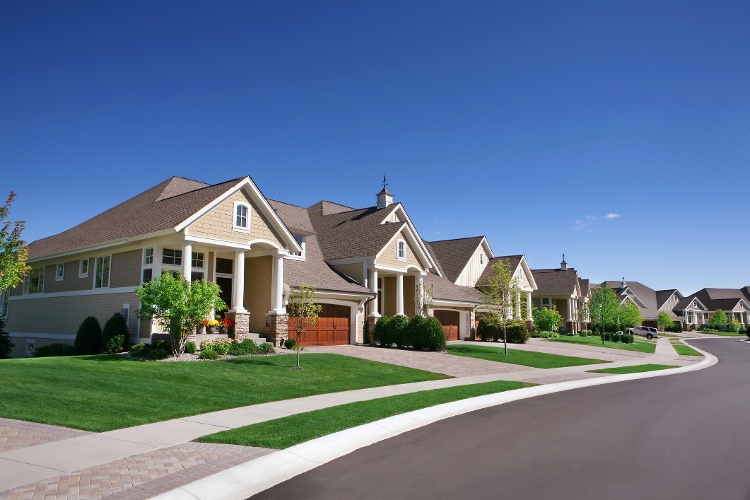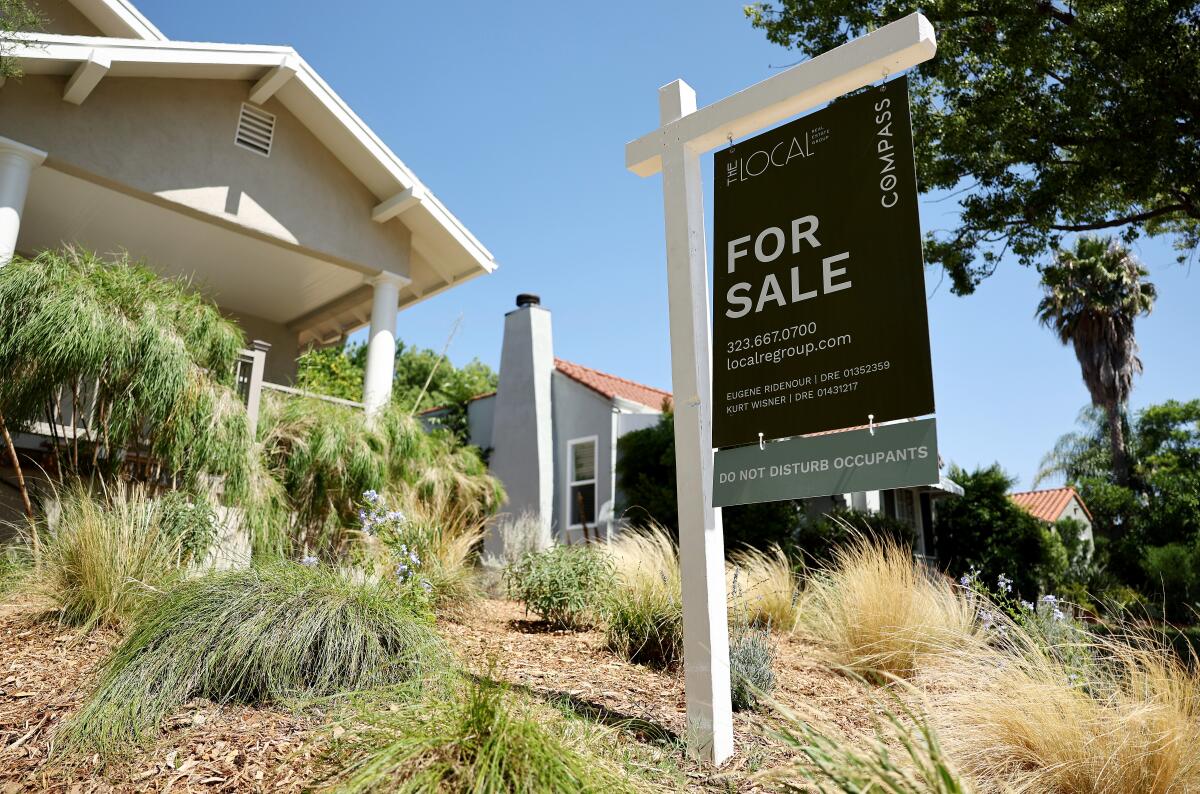Unlocking the Potential of Real Estate Lockhart for Property Investors
Unlocking the Potential of Real Estate Lockhart for Property Investors
Blog Article
The Future of Property: Fads and Opportunities to Enjoy
As the realty landscape progresses, it comes to be increasingly important to recognize the arising patterns and chances that will certainly specify the industry in the coming years. Technical innovations are reshaping transactional procedures, while an expanding focus on sustainability shows changing customer concerns. Furthermore, group shifts and the increase of remote work are affecting real estate choices, especially in suburbs. With these characteristics at play, a closer exam of the adjustments and approaches essential for success exposes intriguing opportunities that might improve investment methods and market behaviors.
Technological Technologies in Realty
Over the last few years, the genuine estate market has embraced a wave of technological innovations that are transforming standard practices. These improvements have actually dramatically improved effectiveness, openness, and decision-making processes within the sector. Among one of the most notable innovations is the rise of big information analytics, which enables property specialists to analyze market trends, forecast building values, and determine investment possibilities with extraordinary precision. This data-driven approach allows stakeholders to make informed choices and lowers the dangers connected with building purchases.
In addition, online reality (VIRTUAL REALITY) and enhanced fact (AR) innovations are transforming property advertising by providing immersive experiences for prospective customers and tenants. These devices allow customers to carry out virtual excursions of homes, consequently enhancing the search procedure and enhancing consumer interaction. In addition, blockchain technology is obtaining traction as a way to safeguard transactions and maintain clear documents, therefore lessening scams and quickening the closing process.
Smart home innovations are likewise becoming progressively prevalent, making it possible for property owners to check and regulate their properties remotely (Real Estate Lockhart). Collectively, these technological technologies are improving the landscape of actual estate, promoting a more efficient, clear, and customer-centric industry
Demand for Lasting Qualities
As customers progressively focus on environmental duty, the need for sustainable residential or commercial properties has surged in the property market. This shift mirrors a more comprehensive social trend toward sustainability, with property buyers and investors looking for residential properties that lessen eco-friendly influence while taking full advantage of energy performance. Functions such as photovoltaic panels, energy-efficient devices, and sustainable building products are currently considered as vital instead of optional.

Additionally, the increase of environment-friendly communities, which prioritize walkability and accessibility to mass transit, further stresses this fad. These advancements appeal to eco conscious purchasers and promote a much healthier way of living.
As the need for sustainable buildings remains to climb, market stakeholders must adapt to these expectations. By prioritizing and embracing ingenious methods sustainability, the real estate sector can not only meet consumer need however additionally add to a more sustainable future.
Transforming Customer Demographics

Additionally, the aging populace is reshaping need for housing. Baby boomers are seeking scaled down homes that supply access and reduced upkeep, usually preferring metropolitan settings with close-by facilities. This shift requires an emphasis on multi-generational housing services that accommodate differing needs.
Additionally, cultural variety is playing an essential role in property patterns. Customers from various backgrounds bring unique preferences and assumptions, motivating developers to create comprehensive atmospheres that satisfy a broader audience. As these demographic shifts proceed to develop, property professionals must adjust their approaches to resolve the demands of these diverse buyers. Understanding these altering demographics will certainly be essential in identifying crafting and emerging opportunities customized marketing strategies that reverberate with the varied demands these days's visit the site market.
Increase of Remote Work Impact
Progressively, the increase of remote work is changing the actual estate landscape, motivating substantial shifts in buyer preferences and location choices. As staff members appreciate the flexibility of functioning from home, several are reevaluating their domestic demands, leading to a rise in demand for homes in suv and rural areas. This fad is mainly driven by the need for more roomy these details living settings that can suit office and a better lifestyle.
In addition, metropolitan centers, when the centerpiece for customers, are observing a gradual decline popular as individuals focus on cost and access to nature. Subsequently, actual estate developers and capitalists are moving their emphasis toward residential or commercial properties that provide home office spaces, outside amenities, and closeness to crucial services.
This developing landscape demands a reevaluation of traditional market techniques. Realty specialists have to adjust to the altering preferences of customers, stressing the relevance of way of living consider their advertising methods. In addition, home builders are progressively prioritizing versatile layout that accommodate the twin requirements of living and working, ensuring that they remain competitive in a swiftly transforming market. The implications of remote deal with property are profound, shaping future trends and possibilities.
Financial Investment Opportunities in Emerging Markets
Investment opportunities in arising markets are consistently standing out from investor looking for diversification and growth possibility. These markets, defined by fast financial development, enhancing urbanization, and an expanding middle class, existing unique potential customers for wise investors. Nations in Southeast Asia, Africa, and Latin America are witnessing substantial facilities improvements and positive federal government policies, which better boost their appeal.
Real estate fields such as domestic, commercial, and logistics are experiencing heightened demand as a result of city movement and progressing customer choices. Especially, cities like Ho Chi Minh City, Nairobi, and Medellín are becoming hotspots for investment as a result of their expanding economic climates and youthful demographics.
Investors need to carry out complete market evaluations to identify key trends, such as shifts in population characteristics and economic security, which can influence home worths. Furthermore, collaborations with regional actual estate companies can promote successful link entry and navigation in these markets.
However, it's crucial to be mindful of prospective threats, consisting of political instability and regulatory obstacles. By considering these aspects and adopting a long-lasting viewpoint, capitalists can effectively exploit on the financially rewarding chances emerging in these creating regions.

Final Thought
In verdict, the future of real estate will be substantially influenced by technical advancements, a growing focus on sustainability, and progressing customer demographics. Browsing this transforming landscape will call for strategic partnerships and an eager understanding of market characteristics to take advantage of on the fads forming the industry.
As the actual estate landscape progresses, it comes to be significantly important to comprehend the emerging trends and chances that will certainly define the market in the coming years. One of the most significant technologies is the surge of huge information analytics, which enables genuine estate experts to analyze market trends, predict residential or commercial property values, and recognize investment chances with extraordinary precision.As customers significantly prioritize ecological duty, the need for sustainable properties has actually risen in the genuine estate market. The implications of remote work on genuine estate are profound, forming future patterns and opportunities.
Financial investment opportunities in arising markets are consistently drawing in attention from real estate capitalists looking for diversity and growth possibility.
Report this page